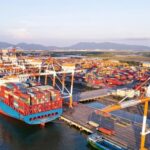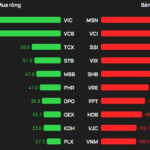
Illustrative image
According to EU officials, they have been notified of the newly established plan to tighten restrictions on Moscow’s aging oil tankers. Specifically, Russian oil tankers passing through European waters will be required to prove that they have adequate accident insurance or face sanctions.
Under the new mechanism, maritime authorities will request insurance documents from vessels passing through the Danish Straits, the Gulf of Finland, and the strait between Sweden and Denmark.
The G7 sanctions prohibit Western insurance companies from providing insurance services to vessels that violate the terms of the oil price cap, aimed at preventing Russia from selling oil above the fixed price of $60 per barrel for crude oil.
Russia has attempted to circumvent the cap by increasing its reliance on a “dark fleet” of often aging tankers whose control and ownership are kept hidden. These vessels often use unreliable insurance companies or have no accident insurance at all.
The growing insurance concerns have raised fears among coastal states about the potentially high cleanup costs in the event of an oil spill. According to data from the Kyiv School of Economics and the non-profit organization State Capture, the fleet’s tankers were involved in nearly 30 accidents in 2022 and 2023.
Ingosstrakh, a major Russian insurance company providing coverage for the fleet, may have its policies canceled if shipments exceed the cap.
In October, the UK announced it would start tightening insurance requirements for tankers passing through the English Channel. Since June, Estonia has requested documentation from over 200 vessels.
According to FT’s ship tracking data, more than 90 million barrels of Russian oil, including crude and refined products, pass through Northern European waters each month in the first half of 2024. About half of Russia’s sea-exported oil originates from the Baltic region.
Vessels directly sanctioned by the US, EU, and the UK have struggled to continue operations. On December 16, the EU added 52 vessels allegedly part of the shadow fleet to the list of ships banned from EU ports and denied access to EU services.
The European Commission stated in a declaration: “This targeted approach by the EU increases the costs for Russia of using such vessels,” also noting that they will continue to closely monitor how this fleet attempts to circumvent Western measures.
According to FT















